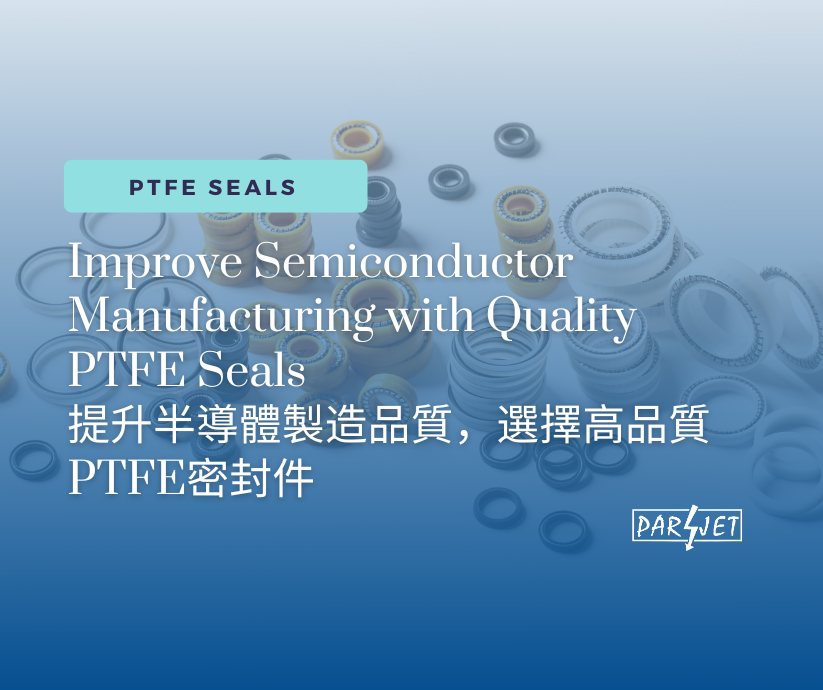Improve Semiconductor Manufacturing with Quality PTFE Seals
In the highly precise and demanding field of semiconductor manufacturing, every component of the production equipment plays a crucial role in ensuring optimal output and efficiency. Among these components, PTFE seals stand out for their critical function in maintaining system integrity and enhancing performance. This article explores how high-quality PTFE seals can significantly improve processes within the semiconductor manufacturing industry.
The Importance of Seal Quality in Semiconductor Manufacturing
Semiconductor manufacturing involves several sensitive processes that require a controlled environment to prevent contamination and ensure high product yields. PTFE (Polytetrafluoroethylene) seals are essential due to their exceptional properties:
- • Chemical Resistance: Semiconductor production involves exposure to aggressive chemicals. PTFE seals resist these substances, preventing breakdowns and ensuring the purity of the manufacturing environment.
- • Thermal Stability: The ability to withstand extreme temperatures during processes like deposition and etching is crucial. PTFE seals maintain their physical integrity and performance even under thermal stress.
- • Low Outgassing: In vacuum applications, outgassing can lead to contamination. PTFE's low outgassing properties make it ideal for use in vacuum environments, crucial in many semiconductor fabrication steps.
Enhancing Production Efficiency with PTFE Seals
Using high-quality PTFE seals in semiconductor manufacturing equipment offers multiple benefits that directly impact production efficiency and output quality:
- Reduced Maintenance Downtime: The durability and wear resistance of PTFE seals mean that machinery can operate longer without the need for maintenance. This continuity is critical for maintaining the stringent production schedules typical in semiconductor manufacturing.
- Increased Equipment Longevity: The protective qualities of PTFE seals help to extend the life of the equipment. By providing a reliable seal against harsh conditions, these seals protect sensitive parts of the machinery from premature wear and tear.
- Improved Product Quality: The enhanced sealing capability ensures that contaminants are kept out of critical manufacturing areas, reducing the risk of product defects and improving yield rates.
Case Studies and Industry Examples
In practice, many leading semiconductor manufacturers rely on PTFE seals for their critical applications. For instance, a prominent semiconductor company reported a 30% reduction in maintenance needs after switching to custom-designed PTFE seals for their high-precision etching equipment. Another example includes a manufacturer of wafer fabrication equipment who observed noticeable improvements in machine performance and reduced particle contamination after integrating PTFE seals into their systems.
Choosing the Right PTFE Seal Manufacturer
Not all PTFE seals are created equal, and selecting the right manufacturer is crucial. When choosing a PTFE seal supplier, consider the following factors:
- • Customization Capabilities: Can the supplier provide custom-engineered solutions tailored to specific needs?
- • Quality Assurance: Does the manufacturer adhere to stringent quality standards, and are their products certified by relevant authorities?
- • Technical Support: Look for a supplier that offers comprehensive technical support and collaborative development opportunities.
Conclusion
Quality PTFE seals are indispensable in optimizing semiconductor manufacturing processes. By choosing the right seals and manufacturer, companies can enhance their production efficiency, extend equipment lifespan, and improve product quality—key factors in staying competitive in the rapidly evolving semiconductor industry.
Contact Us
For more information on how Parjet PTFE seals can transform your semiconductor manufacturing operations, please contact us. Our team at Parjet is ready to provide you with the expertise and solutions you need to meet your manufacturing challenges.






